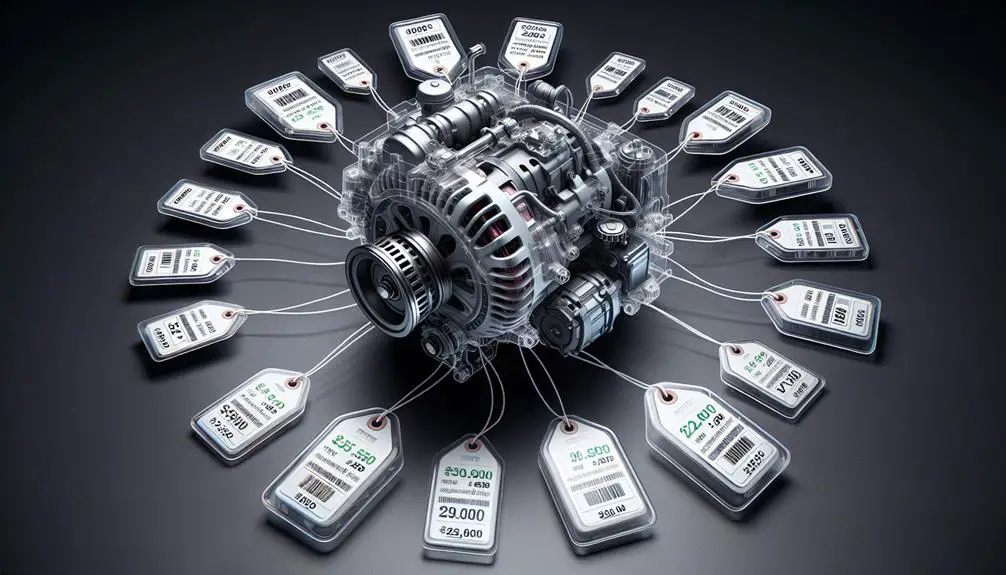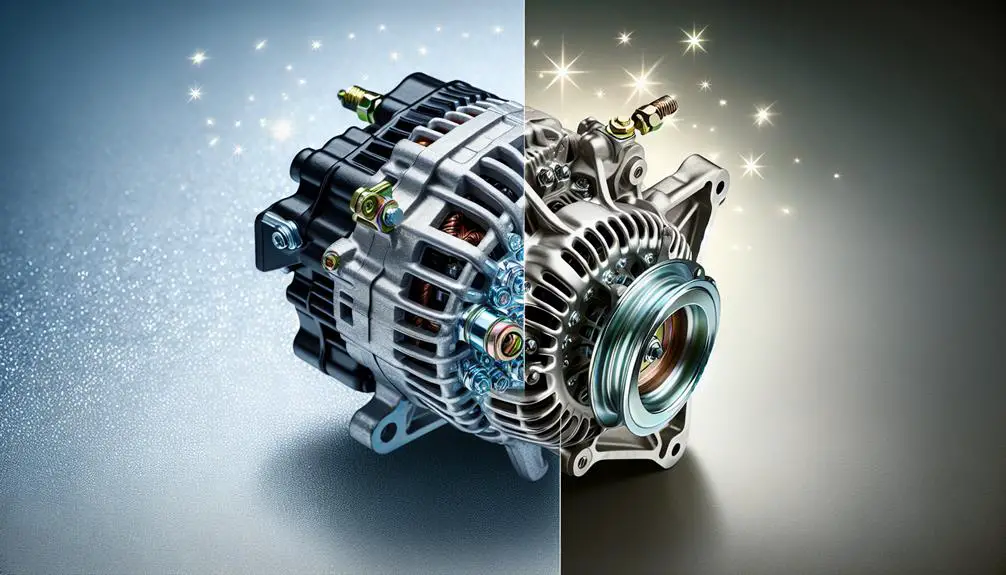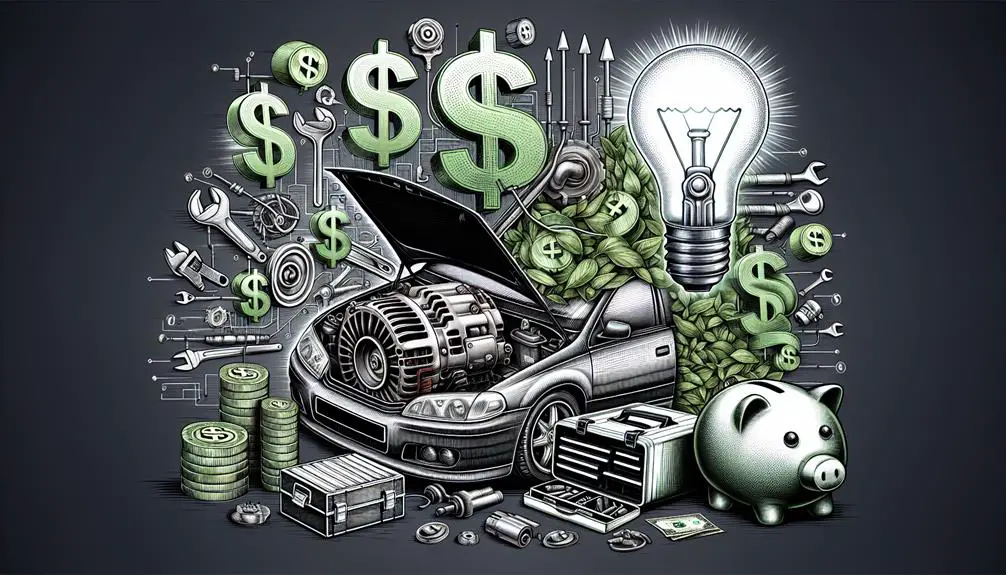The average cost to replace an alternator ranges from $500 to $1,000, influenced by the choice between new and remanufactured units, and includes installation expenses.
Understanding these factors can help save money without sacrificing quality.
Understanding Alternator Costs

The cost of alternators varies greatly. This is because the price depends on the type and quality of the alternator. Each vehicle requires a specific alternator, based on its make, model, and engine type. High-end cars might need more expensive alternators. Besides, choosing between a new, remanufactured, or used alternator affects the price. Each choice has advantages and disadvantages, influencing both initial cost and how long the alternator will last.
Additionally, you must consider installation costs. If you can install the alternator yourself, you might save money. However, most people will need to pay for professional installation, which adds to the total cost. Understanding these factors helps you make a cost-effective decision.
Factors Influencing Price
The price of an alternator is influenced by several key factors. These include:
- The type of vehicle you have. Luxury and high-performance cars need more expensive alternators due to their specific needs.
- The alternator's power output. Cars with many electrical features require alternators that can produce more power, which increases the cost.
- The brand and warranty of the alternator. Choosing a well-known brand or one with an extended warranty might be more expensive initially but can offer better long-term value.
In summary:
| Factor | Price Impact | Reason |
|---|---|---|
| Vehicle Type | High | Depends on car's specific needs |
| Power Output | Moderate to High | Based on the car's electrical requirements |
| Brand & Warranty | Moderate | Higher for better quality and assurance |
New Vs. Remanufactured Alternators

When deciding on an alternator's cost, it's important to compare new and remanufactured alternatives to see which fits your budget and needs better. New alternators are directly from the maker or an authorized seller. They're preferred for their reliability and warranty, though they cost more.
Remanufactured alternators are cheaper. They're taken apart, checked, repaired, and tested. They can be as dependable as new ones if bought from a trustworthy seller and are better for the environment because they reuse parts.
Think about the warranty and the maker's reputation too. New alternators usually have longer warranties, offering more security. Remanufactured ones might've shorter warranties, so consider if the savings are worth the possible risk.
Your choice between new and remanufactured alternators depends on your priorities. If you want durability and can pay more upfront, choose a new one. If you have a tight budget and are okay with a bit more risk, a remanufactured one could be good.
Installation Expenses
When planning for an alternator, remember to include installation costs in your budget. These costs can change a lot depending on your car's type, how complex the installation is, and where you choose to get it installed – at a dealership, an independent shop, or by yourself. The place you choose affects the total cost because labor rates vary. Dealerships usually charge more but offer specific expertise and parts for your car's brand. Independent shops might be cheaper and offer services for many car types. If you know how to install it yourself, you can save money, but make sure you're skilled enough for the task.
Remember these points for installation costs:
- Labor Rates: Difference between dealerships, independent shops, and doing it yourself.
- Car Type: The installation complexity depends on this.
- Your Skills: Be honest about your ability to install it yourself.
Saving on Alternator Replacement

To save money on alternator replacement:
- Compare prices for the alternator. Look at different suppliers, including online and discount stores, to find a good deal.
- Consider buying a refurbished or remanufactured alternator. These are cheaper than new ones and often come with a warranty. Make sure to buy from a trusted source.
- Check labor costs if you're not installing it yourself. Get quotes from different repair shops, including local mechanics, as prices vary.
- If you can, install the alternator yourself. There are many online guides to help you. Make sure you have the necessary skills and tools to avoid damage and extra costs.
Conclusion
The cost to replace an alternator can change a lot. It depends on if you buy a new one or a fixed-up one, and what kind of car you have. Paying someone to put it in can cost more, but you can save money by looking for good deals or doing it yourself if you know how.
Buying a good alternator now can help you avoid bigger problems and costs later.